
Human Stuff is a free weekly newsletter. If you’d like to support my work and also access my monthly reflection guide, I invite you to become a paid subscriber. This is a reader-supported offering and I’m so grateful for your presence here.
Please feel free to share parts of this newsletter that connect with you on social media or send to someone you love.
A song I’m loving:
Yesterday was the one year anniversary of writing Human Stuff on Substack. I think back to the version of myself that existed a year ago, desperate for another place, another space, another location to exist in. I remember feeling claustrophobic on social media, like I was an ocean trying to fit into a stream. I remember longing for space for my own words, for practicing consistency as devotion, for trusting my voice outside of just being a therapist, a resource, a guide — for trusting my voice as a whole human, complex, still healing, still figuring it out, never on the “other side”, no longer needing to pose as a beacon of growth or healing but wanting to show up in between, in the process, in the midst.
I recently got a message from someone sharing how uncomfortable they were when they first started reading my newsletter. They said something along the lines of, “I thought you were healed and had much more figured out — it was uncomfortable to see someone I looked up to still moving through your own struggles. I was honestly disappointed at first.” I’ve gotten similar messages before — “You’re a therapist, shouldn’t xyz be easier for you by now?” “You’re a therapist, you know what to do!” “You’re a therapist, you don’t need my help.” “You’re a therapist, why do you still deal with depression?” “You have a huge platform, you must have it all figured out, you must be farther along than me, you must stay on the pedestal I’ve placed you on.” “You have hundreds of thousands of followers, you must be (fill in the blank).” “You’re my mentor without you even knowing it.”
A lot of people say these things just come with having a platform — and in some ways, that’s true. It’s part of the territory. Yet saying it’s “just the way it is” allows us to bypass the impact it can have — the ways it can weave into our self-concept over time — the ways it can influence the parameters we feel we can let ourselves be seen in — the ways it can cause us to orchestrate ourselves more than we trust ourselves.
I think about how paralyzing it can be to feel like there’s not room to just be a person in the world. I think about how freeing it can be to let ourselves be fully human, outside of any one role or identity, outside of what is expected of us, outside of what others may want or assume they need, outside of what we’ve always done or been most liked and admired doing. I think about how it isn’t actually safe for many people to let themselves do that.
I think about the goodness that has come from having a larger platform, and also the quickness with which people forget I’m just a person. I think about the privilege of having a platform — the gifts it has given me — and also the unending pressure to both be what everyone wants me to be and also not try to be that and also not be effected by it and also use it as a growth point and also turn it into content. I think about the comfort we get when we decide who someone is and keep them in that self-created box, assuming our disappointment when they step out of it is of their doing instead of our own. I think about all the messages and emails I’ve received from folks telling me I’ve let them down in some way — that they liked it better when I just shared information and tools — that it’s more comfortable for them when I show up as a curated, authentic-but-not-too-authentic shape — that keeping me in the “After” of a Before and After story felt more inspiring to them than knowing I’ll never be an After, that I’m perpetually in the middle, that I’m a person beyond being of service.
I think about how the beliefs we build about people — the worlds we create for people in our own minds — so often keeps them distant from us, keeps them small, keeps them contained — and then we wonder why they are distant, small, contained. I think about how the ideas we have about others based on their roles or identities, their status or follower count, their appearance or lifestyle, their wins or missteps, often make it hard for us to see them beyond those markers, beyond those constructs, beyond those points of reference. I think about how badly all of us just want to be seen as who we truly are.
Part of starting this newsletter was to shift from being of service to everyone else, to also being of service to my own truth, my own wholeness, my own un-compartmentalized self, my own desires, my own humanity. Sometimes, choosing to show up as who we are, including the parts that may not actually be of service to anyone but ourselves, means we will let someone down, disappoint someone, knock over someone’s sculpted image of who we are, tumble off the pedestal others hoist us onto. Choosing to show up as who we are might mean facing the projections others hold and no longer shapeshifting ourselves to avoid them. It might mean letting go of the comfort we might find in performing the roles we assume we must stay in to belong. It might mean facing the uncertainty of outcome, the potential for rejection or failure, the disapproval and disappointment. Yet what comes as a side effect of showing up as who we are has felt much bigger than all of that.
It has been a deepening of trust in the parts of me that were begging to be let out. It has been allowing grief, allowing the unknown, allowing the process rather than always striving for an outcome, and allowing the beliefs anyone may hold about that to be theirs — not mine. It has been offering care the unfinished pieces of me I long thought I needed to hide in order to fit in, to be enough, to be professional, to be good, to belong. It has been undoing the narrative of what it means to be of service and noticing how just being myself is of service, too — that putting myself last on the list of who I’m serving isn’t a requirement. It has been letting go of trying to control how anyone sees me and showing up with the consistency and presence I’ve been craving all along. It’s been remembering, over and over again, that folks choosing to leave aren’t my birth mother — that they aren’t abandoning me — that their choice to leave is theirs, and I don’t need to do everything I can to avoid it happening.
It’s much more neat and tidy to trust our assumptions about others than it is to live in the murky waters of not knowing, of holding curiosity, of dropping projections and seeing what’s in front of us. It’s much more clean to pretend we’re right about who people are than it is to be open to being wrong. It’s much more comfortable to see things in black and white than it is to make room for what’s unseen, for colors that aren’t as easily identifiable, for all the life that exists in between the obvious.
Through writing as myself here over the last year, I have slowly dropped the pressure to fit myself into the boxes others provided me — not without struggle or efforting, not without the desire to fit whatever mold I think will make you stay, but with compassion and a willingness to explore what it feels like to just be myself — sometimes a therapist, sometimes a mess, sometimes on the upswing, sometimes deeply wise, sometimes on the floor, sometimes on a mountaintop, mostly finding my way somewhere in between.
May we learn that learning to be ourselves may take a lifetime of practice.
May we let others change, let others find new shapes, let others exist as they are.
May we notice where we’re clinging and loosen our grip.
May we trust the inklings wanting to be shared, said, seen.
May we acknowledge where we’re forgetting someone is just a person.
May we not forget we are just people, looking for our own aliveness.
May we accept our wholeness, the murky and the magnificent.
May we know our wholeness is a mirror of theirs, of yours.
Thank you for being here this last year — for making Human Stuff a place that feels soft and sturdy, contemplative and kind — for engaging with me, sharing with me, being here with me — for your deeply thoughtful and nourishing comments — for sharing this newsletter with friends — for letting my own practice of just being a person mirror to you your own. This tiny corner of the world has made my life brighter and richer over the last year in ways I didn’t anticipate, and I am looking forward to what the next year brings in this space, in myself, in all of us.
△ Reading novels — currently The Swimmers, which is incredible
△I loved reading this essay on the value of creative time from
△ Why Poverty Persists in America
△ I had a lovely chat (my first Instagram Live in almost a year!) with my friend Mara Glatzel about her powerful new book, Needy
△ My Author Photo Brought Me Face to Face With the Body I Hated
△ Falling In Love With The World
△ If You Read the G.O.P.’s Anti-Trans Policies, You’ll See What It Really Wants
△ Spur-of-the-moment drives that make everything just a little more clear
With care,
Lisa





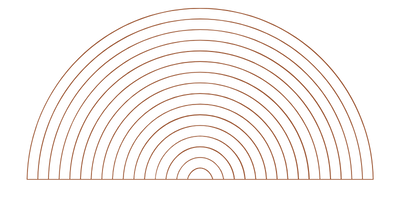
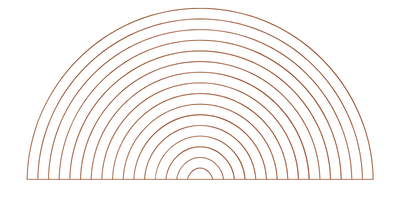
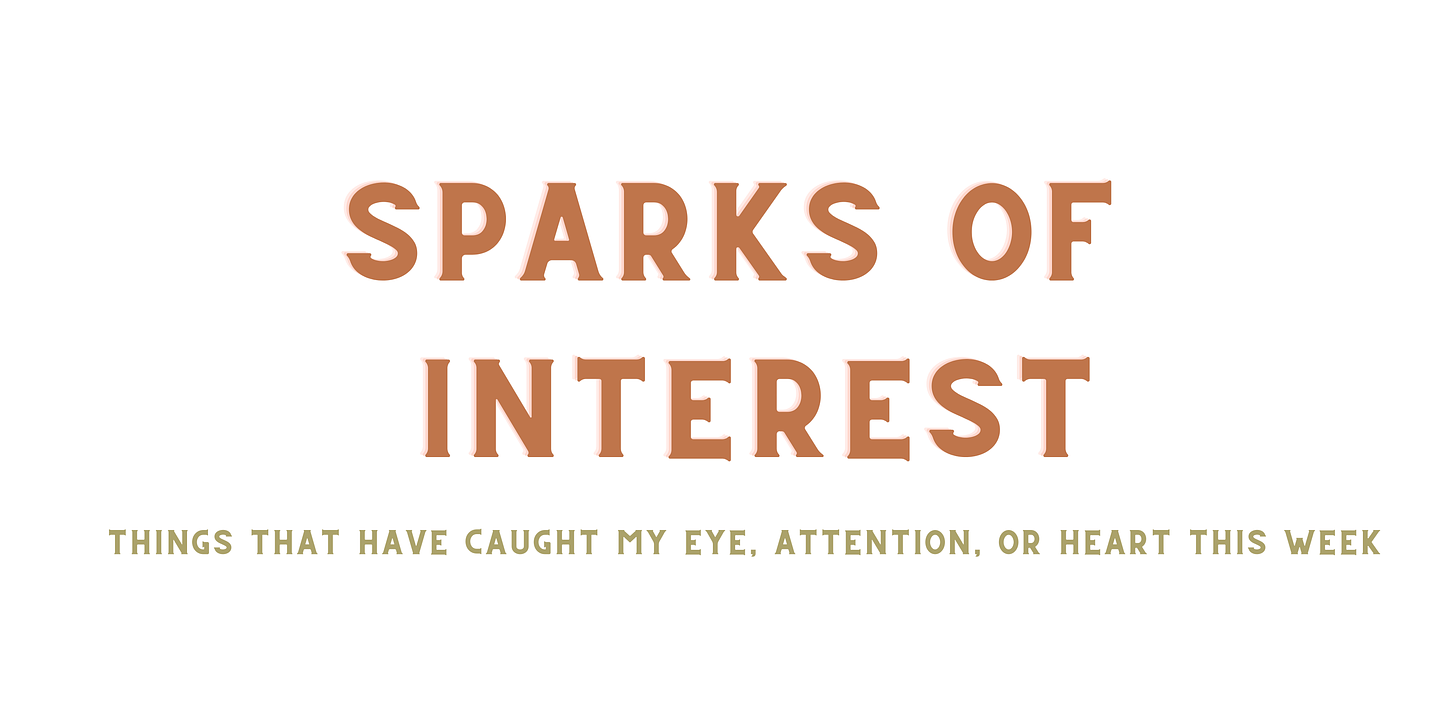






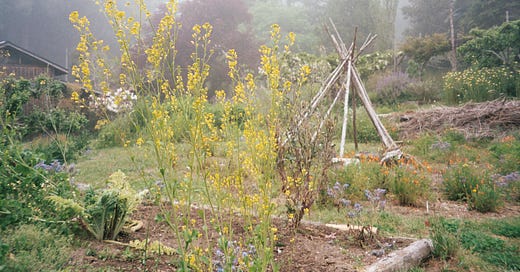

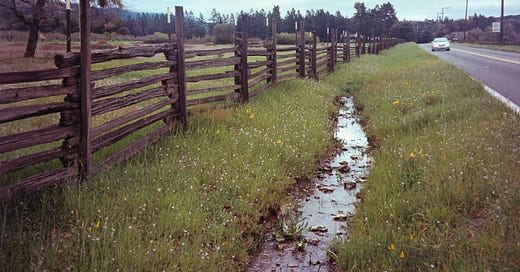

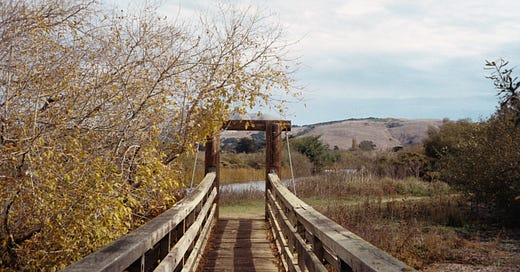

The pedestal is a great image. I notice myself worrying about falling off it, and often realize “they” didn’t build it… I did - as some form of box for myself to feel safe in. What’s left after the pedestal fall is a new wondering moment about who I really am. Some kind of rebirth.
The image I form about how others see me is so very limiting. Often I look at it and realize I’m acting like it’s best for people to see me more like Robot than Human.
Lisa, as the more you share your Human with us, the more we can shed the Robot ideals we have for ourselves. ☺️
Great newsletter. Though it might not be as salient, for all the people reaching out wishing you just shared the good stuff, there is probably an immense amount of people who find comfort in someone admitting they aren't perfect...maybe they just aren't as loud. I'm currently reading Ram Dass's "Being Ram Dass" and what's interesting, but also makes sense to me, is that one thing he credits for his ability to help people while also gaining such a devoted following was that he was one of the few spiritual teachers that'd be the first to admit his stumbling and shortcomings. It made him relatable to people in ways they hadn't encountered before. Most people were just show their best and hide the rest. For everyone craving a perfect guru, there's at least 1 person craving someone to relate too. Keep going : )